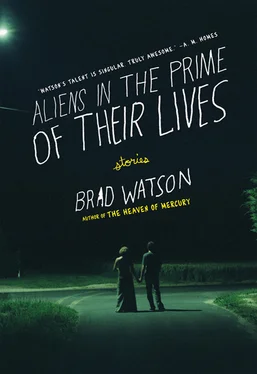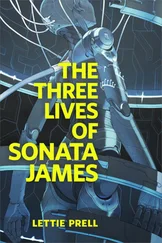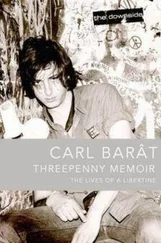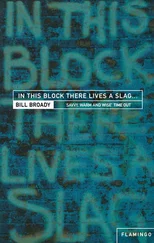BUT THERE WE STOOD, far out in the tepid brown Mississippi Sound, waving to her. She was not actually distinguishable to us as herself, that far out. She was a figure who occupied the spot where we’d last seen our mother, apparently wearing the same pale blue scarf on a head of short dark hair, with the same pale skin, and waving back for a moment, then falling still. A figure in the light of the moment just a millisecond away, her image reaching us far out into the Sound, yet gone as if she’d been gone for a dozen years.
IN THE EVENINGS, we went out to eat oysters on the half shell, platters of fried shrimp, fish, french fries, and hush puppies, and returned to sleep in the luxurious window-unit air-conditioning of our room. Our mother would almost never let us use the a/c at home, as it cost too much on the power bill.
Mornings and late afternoons, we went over to the beach and frolicked. I so love that word. Sand castles, not such artful ones, of mounds, moats, and tunnels. A tall woman with big blond hair and tits like pale luminescent water balloons walked by in a green two-piece bathing suit, walking so carefully she seemed to be treading along the shore through a very narrow passage only she could see. We glanced at our father, and he bobbed his eyebrows. We fell over into the sand, yipping like hyenas.
I once told my mother of being propositioned by a lascivious young country girl at a filling station in Buckatunna, Mississippi, on my way home for a visit. I’d been filling up my little Honda coupe and this woman kind of ambled over and stood there leering at me. You sure are good-lookin, she said. I’m having a party at my house, you want to come on over?
Did you go with her? my mother asked me when I told her the story. Of course not, I said. I didn’t know her from Medusa. Well, that’s the difference between you and your father, she said.
At this time they had been divorced for about seven years.
MY BROTHER AND I danced barefoot across the white-hot parking lot to the center of the Alamo Plaza’s interior court — its plaza, I suppose. There beneath a small shed roof sat a humming, sweating ice-making machine. We would tip open the canted lid to the bin and scoop out handfuls of ice crushed so fine it seemed shaved. We packed it into snowballs and threw them at one another, tossed them into the crackling hot air and watched them begin to shed water even as they rose and then fell to the sizzling concrete, melting instantly into a wet penumbra that shrank and evaporated into smoky wisps. We opened the bin again and wedged our heads and shoulders in there for the exquisite shock of freezing cold. For at least a few moments as we reeled in the white-hot courtyard on burning bare feet, our heads felt as dense and cold as ice cubes on top of our icicle necks.
WE DROVE TO A GROUP of small cabins on a cove and a grizzled man rented us a skiff. Our father sat at the stern and gunned the motor, buzzing us out into the stinking Sound, bouncing us through the light chop, our mother holding on to her sun hat.
We drifted half a mile or so off the shore, baited hooks, and cast out. For a while there was nothing, just the little boat rocking in the gentle waves of the channel, the hazy sky, gulls creaking by and checking us out with cocked heads, a beady black eye.
My brother pulled up the first fish. He swung it over my head and into the boat. It was a small fish, with an ugly face. As soon as it popped from the water it began to make ugly, froggish little sounds. Croaker, our father said. He unhooked it and tossed it back into the chop. I asked about the strange noise it made and he said it was the sound they made trying to breathe out of water.
The truth is the Atlantic croaker makes its sound by tightening the muscles around its swim bladder, and uses the sound for general communication and to attract a mate. It’s said to be a “prodigious spawner.”
I reeled one in, the fight leaving it. Up it came, into the boat. Croak, croak. A brownish fish with a little piggish snout. A small mark on the back of its eye gave it an angry look, a what-are-you-looking-at? kind of look. These fish looked pissed off to be interrupted in the middle of their prodigious spawning.
Soon we were all pulling in croakers. The boat floor crowded with flapping, croaking fish. A chorus of their dry frog noises rose around us. After a while, my father had had enough and started tossing croakers overboard. Some smacked dead on the surface and floated away. Others knifed the water with a final croak and were gone, back to their spawning and general communication with their kind.
WHEN I WAS TOO young to remember, now, how young I was, I began to have a recurring dream, or nightmare. The air in the dream was electric, very much like the electron-buzzing screen of our television when the station went off the air. Jumping with billions of little black dots. A charged, nervous air, the atmospheric equivalent of the feeling you get when you knock your funny bone. In the dream I felt very weak, and very heavy, as if my mass were compounding, draining my strength. I was aware of a hellish din of angry voices, though there were never any distinct words. I began to see I was in a very small room, the only door a tiny one in the corner, little larger than a mouse hole. Other times, the dreamscape changed to one of dreadful empty vastness, all gray, in which the horizon seemed impossibly distant and I seemed very small, and the pressure of the air was heavy upon me. I suppose it was a simple dream of anxiety, though I have sometimes fancied it a latent, deeply buried, sensorial memory from the womb, and who knows but that this is possible on some level? I was too young, it seems to me, to create such a memory from what little I’d heard about gestation. I probably knew nothing of that when the dream began. I may have been told where I came from. I don’t remember. In any case, I have no firm idea where such anxiety in one so young, where that could have come from. Except that I’d had, from a very young age, the sense and fear that my parents would divorce and force me to choose between them. Maybe I had picked up on some general unhappiness. I don’t know. But I spent much of my alone time worrying that something terrible and heartbreaking would happen.
AT THE POOL there were a couple of ladies laughing and sipping drinks at the little round table beneath the green-striped umbrella, and a very big fat man, not overly fat but very big, was taking huge vaults off the little diving board, leaving it bouncing on its fulcrum like a flimsy plank of pine siding as he hit the water in a cannonball, showering the laughing ladies with water, again and again. The ladies cried out, Stop! Oh, stop it! Their laughter rose and drowned in the humid salty darkness and the clacka-clackity-clacka sound of cars cruising past on the cooling white-slab highway along the beach. I listened to the cars long into the night, in my bed, along with the faint surf, my father snoring lightly, my mother and Hal lying still as the dead. The Gulf breezes puffed against the windows, slipped through seams, and drifted through the chilled air of the room like coastal ghosts released from their tight invisibility, sustained for a while by the softly exhaled breath of the living.
MY BROTHER MET ANOTHER boy and began going off with him, around the Alamo’s grounds or at the pool or, when I’d followed them there, across to the beach, where I couldn’t follow without an adult. He became more of an absence, and so I drifted into the same safe quietude where I spent most of my time, anyway, where most middle children spend their time.
At some point in my childhood I wanted out of my family, although I loved my mother and father and tolerated my brothers as well as anyone else. I didn’t want never to see them again, but it would have been nice to live with some other family, possibly across or down the street, instead of my own. An imaginary one, maybe. When you are quiet, you are different, which makes everyone a little nervous and suspicious, if you are the only one that way. I was at ease if left alone in my room to read comics, or alone in the large tract of woods bordering our cul-de-sac street. I loved spying on others walking in the woods when I was hidden and could see them without their seeing me. Sometimes I looked into windows at night, but only at ordinary things. People eating supper, or watching television. No undressing or showers or such. I only wanted to experience the mystery of seeing things as they really were, when you yourself did not enter in. It seemed frank and honest in an exciting way. There was nothing to fear in terms of yourself in such moments. If you were quiet and still, it was almost as if you weren’t there. It was like being a ghost, curious about the visible world and the creatures in it. As if you were dreaming it, and not a part of the dream but there somehow, unquestioned.
Читать дальше












